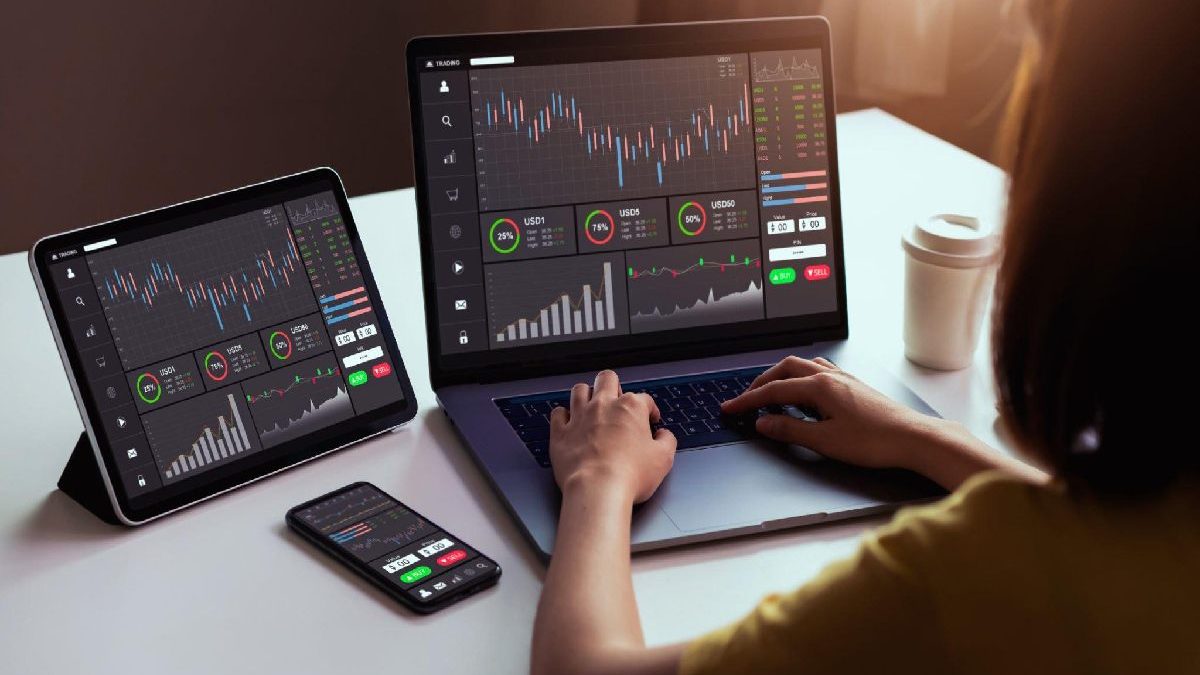In today’s world, it’s not what’s surprising that any software is prone to hacking. No exception, online trading platforms are commonly used for forex transactions, stocks, and so on. How can we anticipate the risk of hacking the trading platform?
According to a research result announced by cybersecurity company IOActive in August 2018, online trading platforms such as AvaTrade, IQOption, and Markets.com have even less security than common banking application. They did research on 16 desktop applications, 34 mobile applications, and 30 websites in a year, then came to some surprising conclusions.
About a fifth of them store passwords without encryption. About a quarter of them don’t take advantage of two-factor authentication. Nearly two-thirds only partially encrypted communications. Even 13 desktop and mobile apps store trading data without any encryption at all! In fact, hackers can take advantage of this vulnerability to steal account balances, spy on account changes, or even tamper with the price quotes displayed on the trading platform.
Since the release of the report in mid-2019, a number of brokers have made improvements to their trading platform security devices. However, we as traders also need to take our own security measures.
Table of Contents
Hacking Attacks Happening Everywhere
The company has confirmed the news that Hacking Attacks Happening Everywhere Hacker achieved to steal US$196 million from crypto trading platform, Bitmart. In its statement, Bitmart called the incident “large-scale security breach”. This incident, Bitmart is temporarily suspending all withdrawals on platform till further notice. As well as saying it is conducting a security review
The report of this hack became known to the Blockchain security and data analysis company, Peckshield. On Saturday it was spotted that one Bitmart address was conducting a steady outflow of tens of millions of dollars worth of money to the hacker’s address.
The company added that the perpetrators stole assets of around US$150. However, Peckshield lost even more, nearly US$ 200 million.
According to Peckshield, Bitmart lost US$100 million in various cryptocurrencies on the Ethereum blockchain. While the remaining US $ 96 million is from the Binance smart chain coin.
The cybersecurity actors managed to steal with a mix of 20 tokens, such as Binance, Safemoon, and Shiba Inu coins.
How to Stay Safe While Trading on a Trading App
1. Safeguard Your Private Key Wallet
Safeguard Your Private Key Wallet Just like passwords, OTP, or PIN codes, private key wallets must also be safeguarded. Because if these codes are leaked to irresponsible persons, your crypto assets might disappear.
Then, how do you protect the private key?
First, never share your private key wallet with anyone, including people who claim to be from a crypto company whether it’s a crypto exchange, wallet, or the issuer of the currency itself.
And then, you can put the private key on a piece of paper or a note, and store it somewhere else safer. By keeping a physical note of your private key, you can at least have a backup.
It’s not hurt as well to install another safety layer by having a VPN. VPN can be a great solution to make you safer than before. You can always try VPN to access Binance risk-free from US. However, make sure to only install the best VPN for the wallet. Why? Because of the additional safety and security features, they will always be worth the price.
2. Use Multisignature
If you have a company that uses cryptocurrencies in its daily operations, then you should use a crypto wallet that has a multi-signature feature, aka requiring many signatures or private keys to execute an order. The function of this feature is to make sure that your device is not accessible because the private keys have to be input as well.
3. Don’t Use Public Wifi
Public wifi is known to be dangerous, especially if you want to use it for trading. Make sure that when buying, selling, or staking crypto assets, you use a personal data package that incidentally is safer. If, for example, you access a crypto exchange that is still not legal in Indonesia, so you cannot access it using a personal data package, then use a VPN so that security is maintained.
4. Use Several Different Wallets
Just like regular money, you should also store crypto money in several different wallets to make it more secure. Thus, if one wallet is lost, damaged, or hacked, you will still have your crypto money stored in another wallet.
If you can’t afford multiple hardware wallets at once, you can just use multiple online crypto wallet apps instead. For example, one for business wallets, one for holding staking assets, and the other for trading so that if your crypto trading wallet gets hacked, you still have a wallet for storing staking results and others.
You can also do these several tips as well. Set up two-factor authentication. If the broker doesn’t provide it yet, then insist that they want to provide the feature. Or, better yet, choose a broker that clearly provides this feature.
Also, be careful if asked to click on a link in an email or fill in trading data on a form from an unknown site. Although most of them are official messages from brokers, not infrequently they are phishing inducements to capture our trading account under the guise of a link similar to the broker’s website address.


